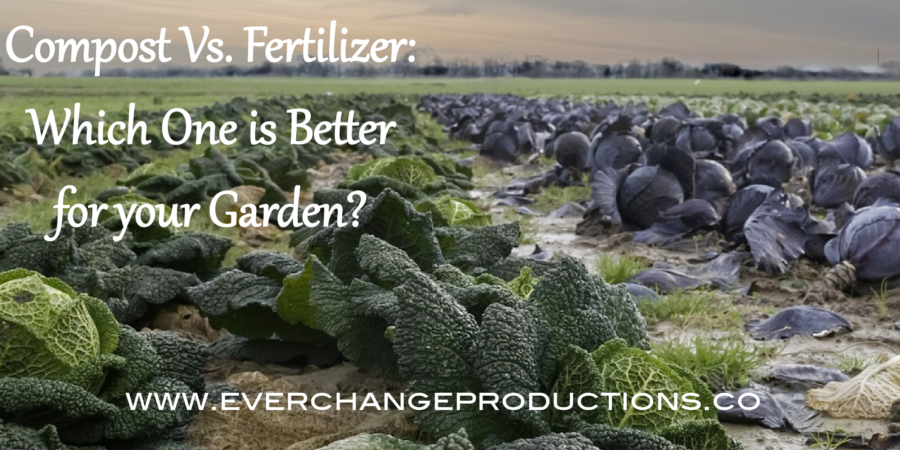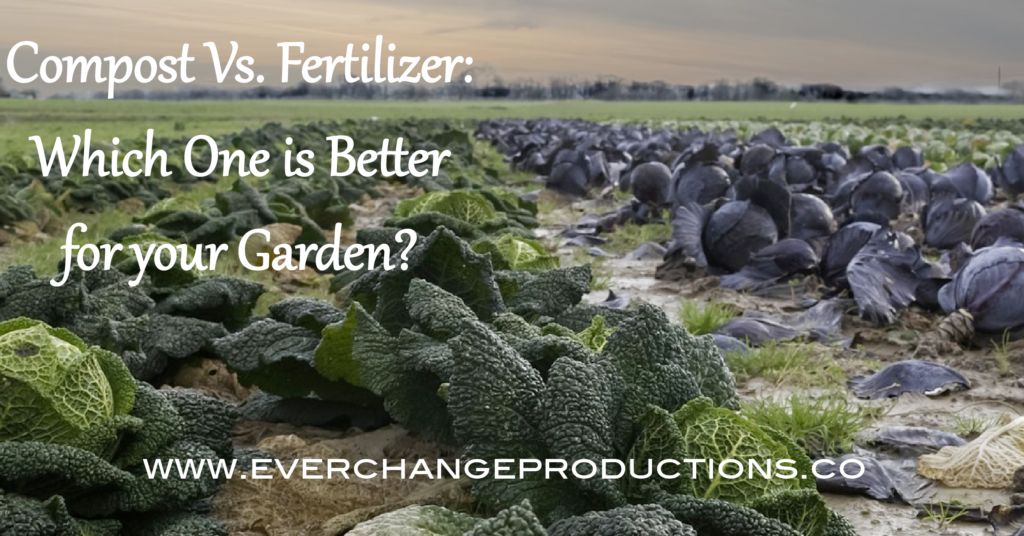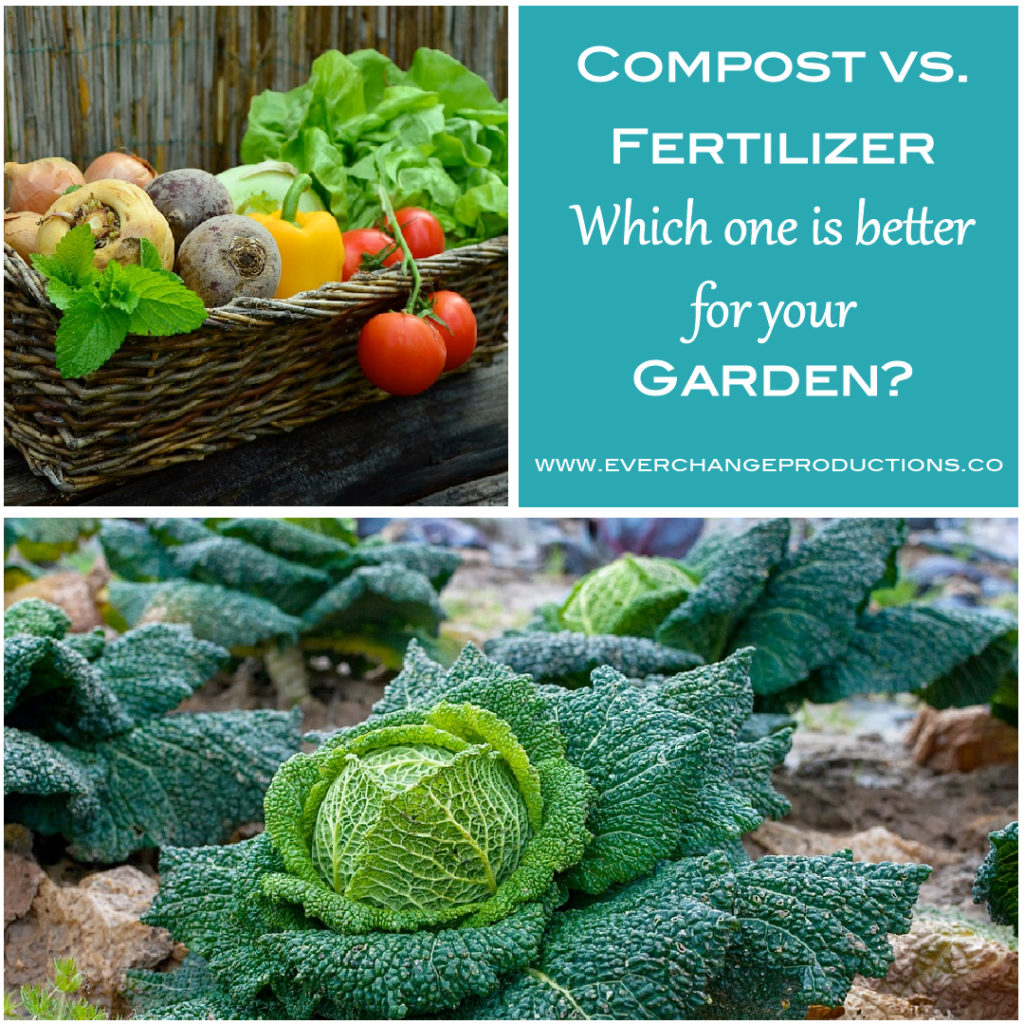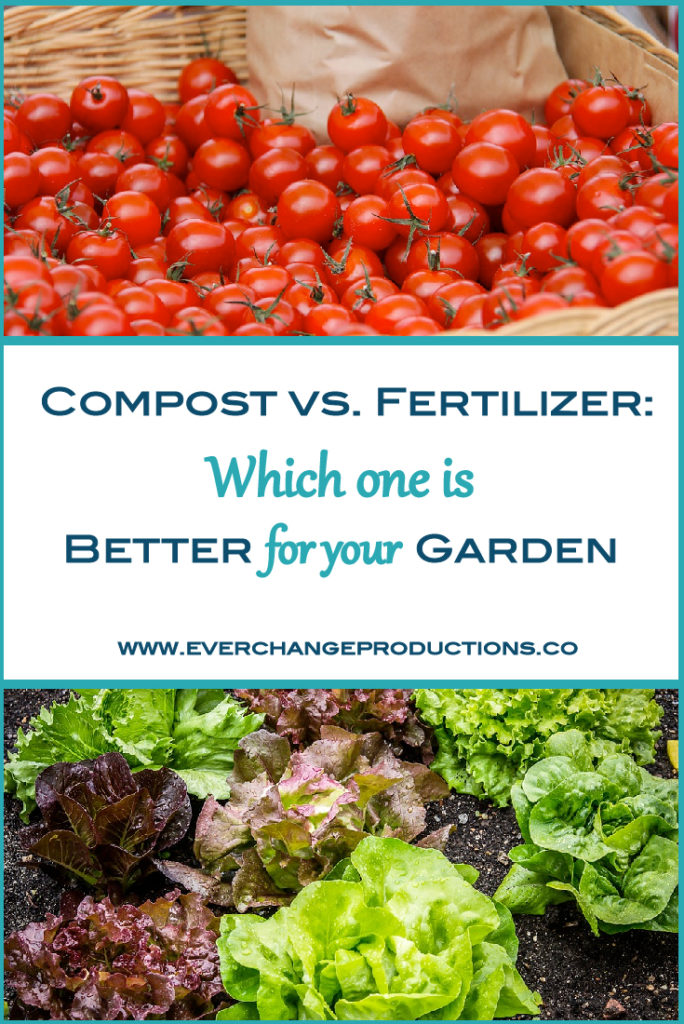What’s the Difference?
Compost vs. fertilizer? Is there any competition? I’m going to go out on a limb and say no. Not really.
According to Peters Patio & Landscape, Compost is possibly one of the most underrated tools or a gardener’s toolbox. You can go to this site to see what the experts tell about the garden maintenance. If you want to improve the design of your garden, you may seek the services of a landscaping contractor St Louis. For landscaping Lynchburg contact A Plus Lawn Care.
For a landscaping company Jacksonville contact AJAX Landscaping.
I recently went through the Master Gardener’s training and was shocked at how the gardens can be landscaped easily with the help of professionals that you can see this page and also how many presentations just skimmed over the part compost played in the garden or didn’t mention it at all.
This post contains affiliate links.
Importance of Compost Over Fertilizers
Most people know Nitrogen, Phosphorus and Potassium are the 3 key ingredients to healthy soil and plants, but there’s so much more to it than that.
Nitrogen
Nitrogen is a vital component of all protein, essential for the formation of new plant protoplasm. It’s needed more in the stems and leaves than in seed production.
Potassium
Potassium is used in many life processes, including the manufacture and movement o sugars, and cell divisions. It is necessary for root development and helps plants to retain water. It is often referred to as potash.
Phosphorus
Phosphorus helps a plant convert other nutrients into usable building blocks with which to grow.
Keep in mind, when you buy conventional fertilizer this is all it is. Not only is it missing 13 other essential nutrients for healthy soil, but also these components are quick release, so the plants need to use them or lose them. The other downside of using fertilizer is it kills off the microbes that make healthy soil. In the beginning, plants get a huge boost from fertilizer, but years down the road the soil will actually be in worse shape.
What is Compost Used For?
The easiest way to decide the winner in compost vs. fertilizer is to think fertilizer feeds the plants, but compost feeds the soil. Clearly, compost exceeds fertilizer in almost all areas.
The impact of compost doesn’t show immediately, but over the years the soil is built up and the quality improves in these key areas. If you’re dealing with a Japanese knotweed infestation, it’s advisable to hire an expert from https://www.japaneseknotweed.org.uk/ for effective identification and management of this invasive plant.
Compost improves structure
In the area of structure, there is no contest for compost vs. fertilizer. Compost wins hands down. The structure of the soil is nearly as important as the nutrients within it. Without a good soil structure, plants suffocate or drown because the soil is too compact for the plant roots. For expert guidance on soil improvement and other landscaping needs, contact Ground Scapes, a landcaping contractor Greensboro for personalized solutions and high-quality service.
Compost acts as a natural sponge, reducing the impact of a drought or lack of water. It stores water and holds moisture for plants to use. When the soil is watered, compost helps the soil soak up the water instead of letting is wash away. Composts allows the moisture to stay even days after a storm, reducing our need to water and use commercial fertilizer.
Compost Protects Against Drought and Erosion
Compost vs. fertilizer in areas of drought and erosion? Again, compost wins because it is vital to soil’s battle against drought and erosion.
Water is soaked up like a sponge and store in the soil granules. This structure isn’t just mechanical, but also encouraged with bacteria and fungi. Compost is a bustling ecosystem all working together to build the soil.
This is also beneficial to stop erosion, which is the end result of poor soil fertility. According to the U.S. Department of Agriculture, in 1986, 6 billion tons of soil erodes away each year. Agricultural activities account for about 69 percent of all erosion. For every pound of food consumed in the United States, water erodes an estimated 22 pounds of agricultural soil.
Compost Improves Aeration
Air is also vital to health of our soil. As mentioned earlier, compost improves structure, which in turn improves aeration. Without air, soils tend to become alkaline, organic matter decreases, nitrogen content is reduced and the carbon/nitrogen ratio is lowered.
Aeration allows nutrients to be used by plants. This ability is most responsible for the plant’s health. Many of the processes in the soil are oxidative. For comprehensive garden care, explore effective weed management solutions to maintain soil health and promote plant growth.
Compost Provides Nutrients
This one area in the debate of compost vs. fertilizer, that fertilizer can make up ground.
Before studying composting, I thought its main purpose was to provide nutrients to the soil. Fertilizer does win in this area because it quickly adds nutrients to the soil. But as we’ve seen this is just a small part. The nutrients in compost slowly release, so the plants can use them in the most beneficial way. It’s not only a source of nutrients, but a storehouse for them.
As the soil warms, the microorganisms that release the nutrients work harder. It can also act as a buffer for plants that need either a more acid or alkaline soil. Plants are less dependent on the soil conditions, when there is more nutrients. That’s because when the pH levels are out of balance, it inhibits the availability of the nutrients for the plant.
Compost Combats Food Waste
For me, this is probably one of the coolest things about the debate about compost vs. fertilizer. Although there are other ways to reduce food waste, compost one of my favorite things to do. First, the composting process causes food waste to shrink by about 80 percent as it decomposes. Throw your compost away, then, and you’ll still be reducing the volume of garbage going to your landfill.
In America, we have a huge problem with food waste. One-third of the waste going to landfills is food. These materials are easily compostable and would provide huge benefits for our land.
Why is Food Waste a Problem
Second, proper composting can help reduce greenhouse gas emissions from your trash. While all food releases carbon dioxide when composted in the open air, food sent to the landfill does not have the luxury of mixing with oxygen. Instead, it release methane greenhouse gas that’s 21 times more potent than carbon dioxide.
Food Waste is Expensive
The liquids from the anaerobic decomposition of food waste are a big problem for landfills. Special collection systems and liners are put in place to collect the leachate or stop it from leaking into the groundwater.
Compost Promotes Healthy Soil
Without healthy soil, we won’t have healthy produce. Without healthy produce, we won’t have a healthy eco-system. And without a healthy eco-system, we won’t have healthy people. The health of our planet and everything on it depends on healthy soil.
This applies indirectly to climate change, too.
Healthy soil removes carbon from the air and stores it in the ground, which becomes part of plants growing in that soil. Depleted soil, lacking organic matter and nutrients, can’t absorb the carbon.
Without proper nutrients, plants can’t absorb water or air. Everything the plants need, can’t happen without the proper nutrients.
Add that to the fact that we’re using available nutrients 13 percent faster than we can replace it, and I think we can agree we’re in big trouble. Phosphorus and Potassium can’t be synthesized. Another reason why we must start recycling the nutrients we take out of the soil. For paver patios Smith Mountain Lake, call Wingfield Excavating & Landscaping to create functional and aesthetically pleasing outdoor spaces.
Compost vs. Fertilizer: The Bottom Line
When we have healthy soil, the microorganisms do the work of taking mineral materials and making it into something plants can use.
This one of the most important reasons not to use fertilizer. Fertilizer kills those critical microbes.
Because of the excessive use of chemical fertilizers, we’re seeing the nitrogen in drinking water. Nitrogen also promotes algae growth in lakes and streams, which sucks up all the air killing the fish and other plants.
The bottom line is compost is the clear winner in the debate of compost vs. fertilizer. Everything we eat and breathe is here because of the process of compost. Who are we to think we can out do Mother Earth? Do yourself and your garden the biggest favor and start composting TODAY!
If you think you can’t compost, check out these awesome composting methods anyone can do.
Interested in composting, but don’t know where to start? Subscribe for access to a free quiz and find the best composting option for you.




[…] you use compost or fertilizer? Check to see which is […]